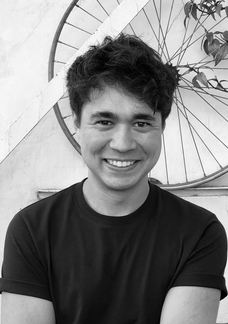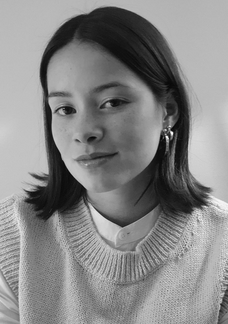Master in Urbanism
Cities are an inexhaustible source of inspiration and fascination, made by human hands. During the Master in Urbanism at the Amsterdam Academy of Architecture, you will learn to understand the city in all its complexity and often improbable scale, to make smart strategic development proposals for its future and to make both functional and attractive design proposals for actual places in the city.
As urban planner, you can translate the desires of citizens, entrepreneurs and administrators, and the abstract analyses, theories and stories of sociologists, economists, town and country planners, traffic engineers and similar disciplines into concrete and meaningful spatial design proposals; for the street, neighbourhood, district, city and urban region. Furthermore, you will be supplied with all the tools at the Academy to develop into a central and connecting person in the building of the city and to become a versatile and authentic professional.
Course overview Urbanism 22-23
OUR MISSION: BUILDING TOWARDS A SUSTAINABLE FUTURE
The world around us is constantly changing and at a rapid pace. We are facing major, cross-border and wide-ranging questions. The challenges – related to climate change, resource scarcity, energy transition, social inequality and declining biodiversity – are urgent, complex, and also all spatial issues for which answers must be sought now in order to maintain perspective on a sustainable and inclusive future.
CURRICULUM
The three study programmes have the same structure. In the six teaching semesters prior to graduation, three forms of education are offered parallel to each other:
- Projects (indicated in this guide with P from the Dutch 'Projecten')
- Research (indicated in this guide with O from the Dutch 'Onderzoek')
- Lectures (indicated in this guide with C from the Dutch 'Colleges')
These three forms of education are supplemented with:
- Form Studies (V) in semesters 1 to 3
- Tools in semester 1 and 2
- the Winter School between semester 1 and 2, 3 and 4, 5 and 6
- the Reflection Clinic and Graduation Clinic in semester 4, 5 and 6
- elements from the elective programme.
Attention is not only devoted to the development of knowledge and skills with these educational components, but students also actively work on their own portfolio.
PROFESSIONAL EXPERIENCE
Acquiring relevant professional experience is part of the study programme at the Academy of Architecture. Practical work experience is gained simultaneously with the study: concurrent education. Generally speaking, this means that an architecture student will work at an architectural firm, an urbanism student will work at an urban design firm or urban planning department, and a landscape architecture student will work at a landscape architecture firm or in a department where relevant landscape design work is carried out.
It is also possible to work for multiple employers on a freelance basis in the discipline the student is studying. Students are allowed to combine their studies at the Academy of Architecture with their own practice or business. The condition, in that case, is that the student submits a written request beforehand detailing the work that he or she will perform, accounting for the amount of time they will spend on this work, explaining which professional qualifications will be developed with this, and identifying the mentor who will supervise this work. In addition, the student will explain why the workplace meets the qualitative demands of the Academy. After approval from the study programme, the student can include this practical and professional experience in the practice records for assessment.
SEMESTER 1
P1a (AUL) Place
P1b (UL) Scene
O1 (AUL) Methods
V1a (AUL) Natural Matter
V1b (AUL) Inspirational Matter
Tools 1+2 (UL) Landscape analysis / Urban space
C1 (AUL) Foundations and Reflection
SEMESTER 2
Winter School (AUL)
P2a (AU) Typology
P2b (U) Neighbourhood
O2a (U) Reading the City
O2b (AUL) Ecosystems and Reflection
V2a (AUL) Self-Growing Matter
V2b (AUL) Technical Matter
C2 (AUL) Book and Debating Club
SEMESTER 3
P3a (AUL) Neighbourhood
P3b (U) City
O3a (AUL) Human, environment and society
O3b (U) Urban systems and infrastructure
(AUL) Intercultural Competence
C3/C5 (AUL) Practices
SEMESTER 4
Winter School (AUL)
P4 (UL) Regional research and design
O4a (UL) Regional research
O4b (U) Metropolis and Urban Region
C4/C6 (AUL) Perspectives
In the fourth year, the graduation process begins. Our Academy's Urbanism learning outcomes are as follows:
DISCIPLINE
- The ability to make spatial concepts and urban designs at different scale levels that satisfy both aesthetic, as well as technical and functional requirements;
- Appropriate knowledge of the international history and the theory of urbanism, and of the relationship with other disciplines involved in spatial planning;
- Insight into processes that have led to human settlements and occupational patterns from a cultural and natural history perspective;
- Skills and methods to make a plan and design clear to others visually, in writing and orally;
- Skills in terms of urban research, insight into planning and design methodologies and skill with regard to the physical, structural and historical analysis of urbanism phenomena and solutions in the Netherlands and abroad;
- Appropriate knowledge of the organisation, tools and instruments of the spatial planning and planning levels in the Netherlands;
- Appropriate knowledge of the content of, and skill in, other disciplines involved in spatial design, namely architecture and garden and landscape architecture;
CONTEXT
- Appropriate knowledge of the social sciences, economics, social and historical geography and the ecology;
- Appropriate knowledge of urban physics in an (inter)national context and of spatial planning law urban planning law in the Netherlands;
- Appropriate knowledge of development technology and civil engineering, in particular that related to hydrological regime, land and water management, preparing for construction, mains services and public works in the Netherlands;
- Appropriate knowledge of management of the built environment and insight into and skill in the methods of urban management processes;
PROFESSION
- Insight into the profession of urbanist in society in the Netherlands and abroad;
- The ability to consider the relationship between people and spaces and the tailoring thereof to human needs and standards when developing a spatial concept for urban design in the Netherlands and abroad;
- Skill in assessing an urban design in relation to standards and rules of form, function, technical execution, land utilisation and environmental conditions applicable to the context;
- Appropriate knowledge of and insight into procedures and processes of decision-making.
Career perspectives
The Academy of Architecture stimulates its students to get the maximum out of their talents. This results in an exceptionally high level and the work of students from the Academy is regularly awarded the Archiprix or other prizes.
After the Master’s programme in Urbanism, you will have access to a broad and well-grounded range of design and research tools and you will be able to operate as an urban planner both nationally and internationally. Moreover, you will be able to effectively collaborate with other disciplines in the design, planning and implementation process as an independent designer within a bureau, or you can begin your own bureau.
Urbanism at the Amsterdam Academy of Architecture
Title
The Urbanism degree from the Academy of Architecture gives graduates the right to independent professional practice as an Urbanist and meets the admission requirements of the various registers formulated in the Dutch Academic Titles (Architects) Act. As a graduate, you have direct access to the Dutch Register of Architects.
Interdisciplinary and international
Architecture, urban design and landscape architecture are independent disciplines, but are inextricably linked with each other at the same time. The Amsterdam Academy of Architecture is the only Dutch design study programme that offers these three spatial disciplines in combination. By focusing on the essence and skills of your profession and, at the same time, partly working in interdisciplinary groups, you will be prepared for an integrated professional practice in the current field of work, where there is an increasing demand for your specific design skills within blurring boundaries. Working within an international context is also becoming increasingly important. The Academy also maintains an active network of foreign study programmes, through which students and lecturers are exchanged on a small scale, and is a member of the European Association of Architectural Education (EAAE).
Inspiring environment
The Amsterdam Academy of Architecture is a small-scale study programme in the centre of the city. All the elements of the urban landscape that are studied and taught here can be recognised in the context that surrounds us. In this way, the city becomes your laboratory, as a social structure, historical artwork and enduring design assignment. At the same time, the work of the students is also valuable to the city itself. Through the designs that the Academy places on the agenda and the designs that the students make, we create a parallel reality time and time again, which can hold its own in terms of power of expression.
Image in header: Graduation project De Duivendrechtse Poort by alumnus James Heus.
![[Translate to English:] [Translate to English:]](/media/avb/_processed_/f/5/csm_DeDuivendrechtsePoort_Heus_2_88372afdef.jpg)





